Re-Emerging with Joy

Key: Re-emerging after the pandemic can be healthy, joyful and balanced.
Living It: Use what you learned over the past 15 months to continue to be flexible, adapt and return your way, since you are in charge.
Psychological Concepts: Applied psychological flexibility and adaptive skills to enhance quality of life post-COVID-19 pandemic.
“In coming years, the world will undergo substantial change. An individual’s capacity to successfully respond to these contextual changes will be critical for their health and wellbeing.”
– Professor Andrew J. Martin,
University of New South Wales, 2017
Chilling prophesy?
Pr. Martin, who is considered one of Australia’s leading educational psychologists, was speaking about the growth of school age children in the new technological and social climates which he saw coming. How eerie those words are as we begin to look back on the COVID-19 pandemic and all we all had to—and continue to—overcome. Especially since he was right! His research found that “adaptability is significantly associated with personal and academic wellbeing” and any of the graduating classes of 2020-2021 can tell you he was on the ball ahead of schedule (Martin, 2017).
This was also true in the United Kingdom, which had “one of the highest mortality rates in Europe” from COVID-19. The UK Statistics office found that throughout the pandemic 72% of the population was “worried about the effect of COVID-19 on their life, with many reporting high levels of anxiety (32%), diminished well-being (43%), and loneliness (23%).” The office also found that “psychological flexibility was significantly and positively associated with greater wellbeing, and inversely related to anxiety, depression, and COVID-19-related distress.” (Dawson and Golijani-Moghaddam, 2020).
These two enmeshed concepts; adaptability and psychological flexibility are our focus today as keys to our healthy and joyful reemergence. They were also my focus in May, but as I noted in last week’s article, needed to be shifted to allow for a new opportunity I had been given. What was that opportunity? Read on. Just like click bait—the ending will blow your mind! Ok, not true. But you will hear about the opportunity I humbly accepted, how you can join in too, if you want, and how it all fits in with being adaptable and flexible in the coming months.
Flexible. Adaptive. Joyful.
“Fear is gradually replaced by excitement and a simple desire to see what you can do on the day.”
– Lauren Fleshman,
American Distance Runner
The world is re-opening and with that comes a wealth of opportunities. Also, if my clients and social media are any indication, comes an increasing amount of stress and anxiety. Many of us have become comfortable over the last fifteen months. While life is not lived in the comfort zone, it is also not to be lived in constant stress. As we re-emerge, to do so with the most health and joy, we need to keep one thing in mind: We are still in charge.
According to Dawson and Golijani-Moghaddam, psychological flexibility is “the ability to recognize and adapt to situational demands in pursuit of personally meaningful longer-term outcomes” and it has “consistently been associated with reduced stress, anxiety, depression, and increased well-being” across a broad range of demographics (2020). Simply put, psychological flexibility is not doing things as you’ve always done because that’s how you’ve always done them. It is the ability to be dynamic and shift based upon the reality of the situation, not our desire of how we would like it to be. This, paired with our own adaptability, is the key to health in the ever-changing world of 2021 as it was in 2020.
While psychological flexibility is one character trait, adaptability encompasses three things according to Professor Martin (2017): The ability to change our thinking as life changes, then adjust our actions to successfully navigate the change all while acknowledging and modulating our emotions so that we can fully access our minds and control our actions.
First, we remember that we are still in charge, despite the changes around us. Then we fluidly accept that there are these changes, then we manage our emotions, channel our thoughts and make the actions which will navigate us through the changes successfully.
But what does that look like in 2021 as masks fall, restaurants open and blood pressure rises?
Here’s an example:
For the past four years I have been part of the organizational team for the Joy Run a 5K race supporting Operation Joy the charity of Child and Family Focus which has provided for the needs of nearly three hundred children and families across four counties. I’ve been a volunteer in Operation Joy for a long time and always will because, simply put, therapy is amazing, but it doesn’t meet all our needs. With Operation Joy 100% of money donated or raised goes to the families and I gotta support that. I gladly have helped out on many initiatives and every year have been a small part of making the Joy Run happen. This year I was asked to be the race director and head the team.
Whoa, right?
Of course, I accepted. But first I employed what we just talked about. I remembered that, though I was offered the position, I was in charge of if I accepted and also in charge of managing my own thoughts (“I’m not worthy!”), emotions (“This could be a lot of stress as you’re adjusting to pandemic end!”) and most of all, make sure my actions were not based around how the race was set up in years past, but how it could be set up in October of 2021 with the continued changes of post-pandemic life.
So, what did I do?
I was honest with the team about my thoughts and concerns and asked the team for theirs. Then we made plans together based on our shared flexible view because I firmly believe any leader’s one job is to serve their team, not the other way around. That meant most of my time was spent rebuilding the race website because we wanted the 2021 Joy Run 5K to be different from the years of traditional in-person run, and last year’s virtual run. The team opted for a race which fostered exactly what we’ve been discussing today: Flexibility and adaptability. Thus, we created a race that could be run in-person in Audubon, PA on 10/9/21 or virtually any time between 9/18/21 and race day. And because we know that the participant is in charge, prioritized their flexibility, acknowledged their thoughts and emotions and wanted to foster their strongest actions, any participant can change from in-person to virtual (or the other way around) until three days prior to race day. This is because, if 2020 taught us all anything, it was that life can change pretty quick and we need to adapt just as quickly.
So, yeah, that took a race site rebuild and that meant I had to delay this piece a bit since we wanted the Joy Run site up by 6/1/21. Feel fee to take a look. We think it worked out great. Feel free to sign up or donate. I’d love to see you live on race day or your virtual race pictures. Race your way, joyfully.
This wasn’t an advertisement piece. This article was intended for May either way, but God has a plan and I love to see how he takes what’s on my heart and gives it relevance to my daily life. I hope it was worth the wait.
More than that, I hope your 2021 life was worth the wait. It’s out there. It should not be something to fear. It also need not be 2018 part two. Stay flexible, keep adapting. Make 2021 totally different and better than any year prior.
You are still in charge.
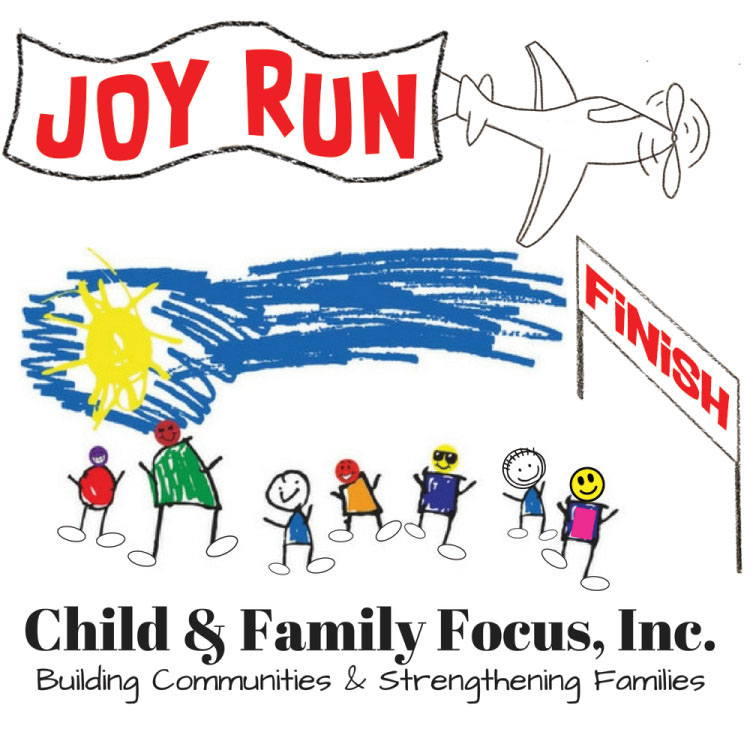
Dawson,D and Golijani-Moghaddam, N.(2020) COVID-19: Psychological flexibility, coping, mental health, and wellbeing in the UK during the pandemic. Journal for Contextual Behavioral Science. Retrieved from: https://www.ncbi.nlm.nih.gov/pmc/articles/PMC7392106/
Martin, A. (2017) Adaptability: A key capacity whose time has come. In Psyche, Australian Psychological Society. Retrieved from: https://www.psychology.org.au/for-members/publications/inpsych/2017/dec/Adaptability-A-key-capacity-whose-time-has-come

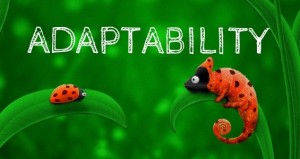
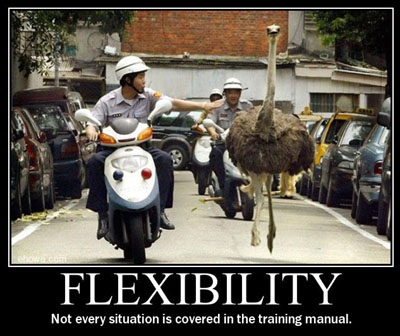
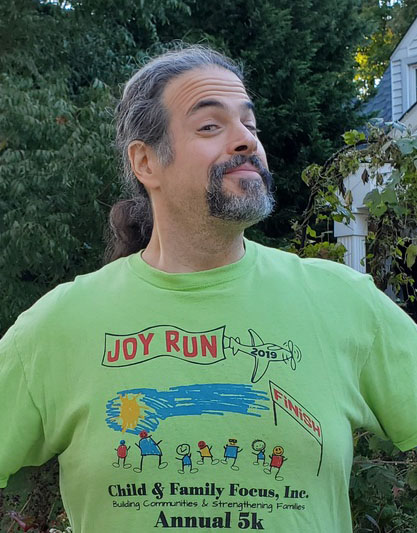
 Previous Post
Previous Post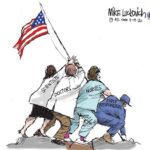 Next Post
Next Post